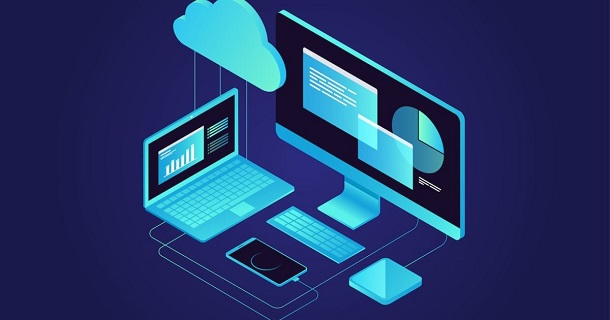Top Applications of data science that is making a difference

In today’s digital transformation era, data science stands as a beacon of innovation, revolutionizing industries and shaping our world. From predicting market trends to optimizing healthcare delivery, data science applications are vast and impactful. In exploring the top applications of data science that make a tangible difference, we delve into the realms where data-driven insights transform businesses, enhance lives, and drive societal progress.
Data science is experiencing an unprecedented surge in demand, making it one of the fastest-growing career fields today. Pursuing a postgraduate degree (PG) in data science equips individuals with the expertise and knowledge necessary to thrive in this dynamic landscape. Through rigorous coursework and hands-on projects, PG data science programs offer comprehensive training in statistical analysis, machine learning algorithms, data visualization, and more. These programs provide a solid theoretical foundation and cultivate practical experience, enabling graduates to tackle real-world challenges confidently. By investing in a PG in data science, aspiring professionals position themselves at the forefront of this burgeoning field, poised for exciting career opportunities and impactful contributions in data-driven industries.
What is data science?
Data science is an interdisciplinary field employing scientific methods, algorithms, and systems in extracting insights and knowledge from structured and unstructured data. It encompasses various techniques to uncover patterns, trends, and correlations, including statistical analysis, machine learning, data mining, and data visualization. By harnessing the power of data, data scientists derive actionable insights, inform decision-making processes, and drive innovation across industries. From predicting customer behavior to optimizing supply chains, data science plays an integral role in solving complex problems and unlocking opportunities in today’s data-driven world.
Applications of Data Science
While data science typically deals with deciphering abstract data points, its tangible influence is evident worldwide. Below are familiar instances of data science or data science-driven services ubiquitous in our surroundings:
E-Commerce: In e-commerce, data science acts as the backbone of modern retail, leveraging data analytics to understand customer behavior, predict trends, and optimize business operations. By analyzing vast datasets containing information on customer preferences, purchase history, and browsing patterns, e-commerce platforms can personalize product recommendations, streamline inventory management, and implement dynamic pricing strategies. Additionally, data-driven insights enable businesses to enhance user experience through targeted marketing campaigns and personalized promotions, thereby fostering customer loyalty and driving sales growth.
Transportation: Transportation systems rely on data science to optimize efficiency, safety, and sustainability. Through the analysis of transportation data from various sources such as GPS devices, sensors, and traffic cameras, transportation companies can develop predictive models to anticipate traffic patterns, optimize routes, and reduce congestion. Furthermore, data analytics enables the implementation of dynamic pricing schemes for ride-sharing services and public transportation, leading to efficient resource allocation and improved accessibility for commuters.
Healthcare: In healthcare, data science revolutionizes patient care by harnessing the power of data to inform decision-making processes, improve treatment outcomes, and advance medical research. By analyzing medical imaging data, electronic health records, and genomic information, healthcare professionals can identify patterns and trends, predict disease risks, and personalize treatment plans according to individual patient needs. Additionally, data analytics facilitates population health management by identifying high-risk patient populations, optimizing resource allocation, and improving healthcare delivery systems, ultimately leading to better health outcomes and reduced costs.
Advertising and Marketing: In advertising and marketing, data science drives targeted campaigns, personalized messaging, and improved customer engagement. By leveraging data analytics techniques including predictive modeling, sentiment analysis, and machine learning, marketers can gain valuable insights into consumer behavior, preferences, and sentiment towards their brand. This allows businesses in creating highly targeted marketing campaigns, deliver personalized content and offers to individual customers, and measure the effectiveness of their marketing efforts in real-time. Moreover, data-driven insights empower marketers to optimize advertising spend, identify new market opportunities, and enhance brand loyalty, ultimately leading to increased ROI and sustainable business growth.
Finance: In finance, data science plays a crucial role in informing investment decisions, managing risks, and optimizing operations. Through advanced analytics and machine learning algorithms, financial institutions analyze vast datasets containing market trends, economic indicators, and consumer behavior to identify profitable opportunities and mitigate potential risks. Data-driven models enable the development of predictive algorithms for stock price forecasting, credit risk assessment, and fraud detection. Additionally, data science facilitates algorithmic trading strategies, portfolio optimization, and personalized financial services tailored to individual customer needs. Overall, data science empowers financial institutions to make more informed decisions, drive efficiencies, and deliver better outcomes for investors and customers alike.
Search Engines: In search engines, data science drives the core functionality of retrieving relevant information from vast amounts of web data. Through techniques such as natural language processing, machine learning, and semantic analysis, search algorithms continuously learn and adapt to user queries, preferences, and behaviors. Data science enables search engines to understand user intent, prioritize search results based on relevance and authority, and personalize recommendations. Additionally, data-driven insights help optimise search engine algorithms for speed, accuracy, and efficiency, ensuring a seamless and satisfying user experience. Overall, data science empowers search engines to deliver timely and precise results, enriching the online search experience for millions of users worldwide.
Conclusion
The transformative impact of data science reverberates across diverse industries, revolutionizing how businesses operate, healthcare is delivered, transportation is optimized, and marketing strategies are crafted. As we’ve explored, data science applications are vast and profound, reshaping how we live, work, and interact with the world around us. Moreover, for those aspiring to embark on a career in this dynamic field, pursuing a postgraduate degree in PG data science offers a strategic pathway to acquire the expert skills and knowledge necessary for success. Through rigorous coursework, hands-on projects, and exposure to cutting-edge technologies, PG programs provide invaluable training that equips individuals to thrive in the ever-evolving landscape of data-driven innovation, making a significant difference in the industries they serve.



